Sinn Féin is an Irish republican and democratic socialist political party active throughout both the Republic of Ireland and Northern Ireland.

Seán Thomas O'Kelly, originally John T. O'Kelly, was an Irish Fianna Fáil politician who served as the second president of Ireland from June 1945 to June 1959. He also served as deputy prime minister of Ireland from 1932 to 1945, Minister for Local Government and Public Health from 1932 to 1939, Minister for Finance from 1939 to 1945, and Ceann Comhairle of Dáil Éireann from 1919 to 1921. He served as a Teachta Dála (TD) from 1918 to 1945.

The 1923 Irish general election was held on Monday, 27 August 1923 and was the first general election in the Irish Free State established the previous December.

The Irish Republican Army (IRA) is a name used by various paramilitary organisations in Ireland throughout the 20th and the 21st centuries. Organisations going by this name have been dedicated to irredentism through Irish republicanism, the belief that all of Ireland should be an independent republic free from British rule.

The Irish Republican Army of 1922–1969, an anti-Treaty sub-group of the original Irish Republican Army, fought against the Irish Free State in the Irish Civil War, and its successors up to 1969, when the IRA split again into the Provisional IRA and Official IRA. The original Irish Republican Army fought a guerrilla war against British rule in Ireland in the Irish War of Independence between 1919 and 1921. Following the signing of the Anglo-Irish Treaty on 6 December 1921, the IRA in the 26 counties that were to become the Irish Free State split between supporters and opponents of the Treaty. The anti-Treatyites, sometimes referred to by Free State forces as "Irregulars", continued to use the name "Irish Republican Army" (IRA) or in Irish Óglaigh na hÉireann, as did the organisation in Northern Ireland which originally supported the pro-Treaty side. Óglaigh na hÉireann was also adopted as the name of the pro-Treaty National Army, and remains the official legal title of the Irish Defence Forces.
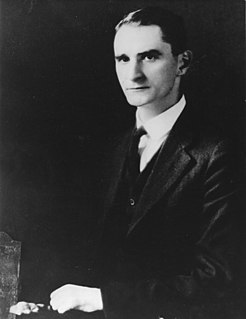
Joseph O'Doherty was an Irish teacher, barrister, revolutionary, politician, county manager, member of the First Dáil and of the Irish Free State Seanad.

Margaret Buckley was an Irish republican and president of Sinn Féin from 1937 to 1950. She was the first female leader of Sinn Féin and was the first Irishwoman to lead a political party.

Peadar O'Donnell was one of the foremost radicals of 20th-century Ireland. O'Donnell became prominent as an Irish republican, socialist activist, politician and writer.

Bartholomew O'Connor was an Irish Cumann na nGaedheal politician. He was a Teachta Dála (TD) for Dublin County from 1924 to 1935.

Mary MacSwiney was an Irish politician and educationalist. In 1927 she became deputy leader of Sinn Féin when Éamon de Valera resigned from the presidency of the party.
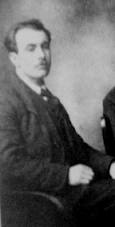
Séumas Robinson was an Irish republican and politician.

Joseph Aloysius Sweeney was an Irish politician and military commander. He fought in the Easter Rising in the GPO and was a member of the IRA during the war of independence. He later became Chief of Staff of the Irish Army.
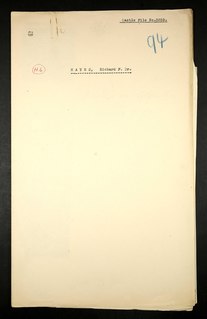
Richard Francis Hayes was an Irish politician, historian and medical doctor. He was a volunteer and fought in the Easter Rising in 1916 and was involved in the Garristown and Ashbourne fighting.
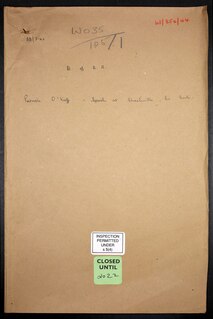
Patrick O'Keeffe was an Irish politician, revolutionary and public servant.
Patrick Ryan (Lacken) was an Irish nationalist and politician. He was born in Newport, County Tipperary.

Peadar Tóibín is an Irish politician who has served as Leader of Aontú since January 2019. He has been a Teachta Dála (TD) for the Meath West constituency since 2011. He previously served as Chair of the Committee on Arts, Heritage, Regional, Rural and Gaeltacht Affairs from 2016 to 2018. He founded Aontú in January 2019.

Peadar Bracken was an Irish Volunteer during Ireland's War of Independence. In 1914 he was elected Captain by the men of the Tullamore Company Irish Volunteers, before later being appointed Commandant of the Athlone Brigade area by Patrick Pearse. Bracken, alongside his comrade Seamus Brennan, are credited with firing the first shots in the 1916 rising in Tullamore. Bracken was under order from Pearse and took command off him for the duration of the 1916 rising. He commanded the critical GPO garrison outpost at O'Connell Bridge, Dublin during the Easter Rising. Later on in his career, in 1920, he was a senior officer in the Irish Republican Brotherhood branch in Tullamore, and commanding officer in chief of the Athlone Brigade. Bracken died on January 19, 1961.

The Sinn Féin Funds case was a 1942–1948 Irish court case in which the Sinn Féin party claimed ownership of funds deposited with the High Court in 1924 which had belonged to the Sinn Féin party before 1923. The Sinn Féin Funds Act 1947, which attempted to halt the court case and assign the funds to Bord Cistí Sinn Féin, was ruled unconstitutional by the Supreme Court in an important judgement on separation of powers and private property rights. The original action was subsequently decided against Sinn Féin, on the basis that the pre-1923 party was separate from the 1940s party. Most of the disputed funds were consumed by legal costs.
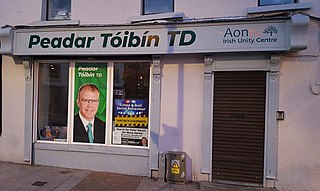
Aontú is an all-Ireland political party that was formally launched in January 2019, and operates in both the Republic of Ireland and Northern Ireland. Ideologically, Aontú is opposed to abortion and combines elements of social conservatism with advocacy for a united Ireland and centre-left economics. It has been led by Peadar Tóibín since its foundation.
Kathleen "Kathy" Barry Moloney was an Irish republican activist, and trade unionist. She was the elder sister of Kevin Barry, an Irish republican paramilitary who was executed in 1920.

















